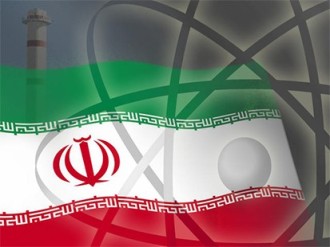
Britain’s Mad-house Foreign Policy
by Stuart Littlewood, source
My local MP, Henry Bellingham, is a Foreign Office minister whose responsibilities include the United Nations, the International Criminal Court and conflict resolution.
I take this to mean he’s tasked with keeping the British Government on the straight-and-narrow as regards international law, with ensuring dutiful conformity with the UN’s Charter and numerous resolutions, with saving our warmongering hotheads from the calaboose in The Hague, and with treading the path of peace at all times.
The International Criminal Court is, to say the least, challenging. The world is crawling with high-ranking war criminals but the ICC in its 10 year history has delivered only one verdict. As if to underline the Court’s utter uselessness as an instrument of justice, the ICC prosecutor has just rejected a bid by the Palestinian Authority to have the war crimes tribunal investigate Israel’s conduct during ‘Operation Cast Lead’ in Gaza.
His excuse is that the status granted to Palestine by the United Nations General Assembly is that of “observer”, not a “Non-member State”. The fact that more than 130 governments and certain international organisations, including United Nation bodies, recognise Palestine as a state makes no difference.
Let’s see how quickly the UNGA, with Mr Bellingham’s help, can get their skates on and straighten out the simple matter of Palestine’s status so that Israel’s strutting psychopaths can finally be brought to book.
Hague’s Threats Costing Us Dear
A recent Reuters article, Iran sanctions bring unintended, unwanted results by their Political Risk Correspondent Peter Apps, points to Western sanctions against Iran having so far failed to deter Tehran from pursuing its nuclear programme and generating instead unexpected side-effects and posing new problems.
It seems to me the consequences of sanctions were entirely predictable.
The expected loss of Iranian crude production has helped push oil prices to levels seen as threatening the global economy. And expert opinion seems to be saying that the ratcheting-up of economic pressure is not having the desired effect but simply increasing Tehran’s determination. “While Iranians may bear the brunt of the economic pain, people around the world are also feeling the knock-on effects of rising fuel prices that also drive food and price inflation.”
The message received is that whether sanctions work or not, “it may now be far from easy for Western states to significantly alter course to reduce or remove the restrictions, even if they want to”.
And Rosemary Hollis, head of the Middle Eastern studies program at London’s City University, is quoted as saying: “The terrible thing is that this is the moment there might be a possibility to at least begin to make progress. But we are going to miss it.”
The other day NASDAQ carried a Dow Jones report saying the head of the U.S. Energy Information Administration had joined a panel of energy experts in dismissing the idea that a “quick fix” could reduce US gasoline prices, suggesting instead that rising demand for oil around the world and supply concerns stemming from Iran sanctions were driving prices at the pump.
The sanctions, coupled with other geopolitical events such as Libya’s civil war, are a source of “grave concern” for the oil markets said Dan Yergin, chairman of energy research organisation IHS CERA.
Hague led the charge on oil sanctions and the imposition of other measures to make economic life a misery. They are backfiring. So that’s another fine mess the Cameron-Hague foreign policy mad-house has got us into.
And Now a Legal Quagmire
The International Association of Democratic Lawyers in a statement issued 26 November 2011, said it was deeply concerned about the threats against Iran by Israel, the United States, and the United Kingdom.
Referring to the most recent report of the International Atomic Energy Agency (IAEA), IADL stated that:
(1) The threats by Israel, the United States, and the United Kingdom are unacceptable, and are dangerous not only for all the region but for the whole of humanity.
(2) Article 2.4 of UN Charter forbids not only use of force but also the threat of force in international relations, and that the right of defence settled by the Charter does not include pre-emptive strikes.
(3) While Israel, is quick to denounce the possible possession of nuclear weapons by others, it illegally has had nuclear weapons for many years; and
(4) The danger to world peace caused by nuclear weapons is so great as to require the global eradication of all nuclear weapons, and to immediately declare the Middle East a nuclear free zone and a zone free of all weapons of mass destruction, as required by UN Security Council resolution 687.”
What do UN Charter Articles 2.3 and 2.4 actually say?
• “All Members shall settle their international disputes by peaceful means in such a manner that international peace and security, and justice, are not endangered”, and
• “All Members shall refrain in their international relations from the threat or use of force against the territorial integrity or political independence of any state, or in any other manner inconsistent with the Purposes of the United Nations”.
It sounds crystal clear. What is it about this that Messrs Hague and Cameron don’t understand?
Let’s look a little closer at the settlement of disputes, one of Mr Bellingham’s specialisms. Article 33 of the UN Charter requires that “the parties to any dispute, the continuance of which is likely to endanger the maintenance of international peace and security, shall, first of all, seek a solution by negotiation, enquiry, mediation, conciliation, arbitration, judicial settlement, resort to regional agencies or arrangements, or other peaceful means…”
I have asked the Government repeatedly, through Mr Bellingham, what efforts the Foreign Secretary made to meet and discuss with Iran’s ministers before resorting to economic ‘terror’ tactics.
• How many times has a British foreign secretary visited Tehran in the 32 years since the Islamic Revolution?
• Did Mr Hague go and talk before embarking on punitive sanctions?
He remains silent. Communication doesn’t seem to be Mr Hague’s strong point, except when lecturing. It was Hague’s decision to shut down the British embassy in Tehran and eject the Iranians from London. He had not in any case maintained a full diplomatic presence in Tehran and the embassy operated at chargé d’affaires level for several months after the previous ambassador left. Now we talk to Iran through a third-party country, Germany.
So much for his stated desire to improve relations, reach out and engage.
Negotiations in Bad Faith
I’m indebted to Dr David Morrison for reminding me that in 2003 the Foreign Ministers of the UK, France and Germany visited Tehran and initiated discussions with Iran on its nuclear programme. This of course was pre-Hague. In a statement issued at the time, the three EU states said they “recognise the right of Iran to enjoy peaceful use of nuclear energy in accordance with the NPT [Non-Proliferation Treaty]” – i.e. Iran had a right to uranium enrichment on its own soil like other parties to the NPT. This was repeated and confirmed at the Paris Agreement in 2004. Iran agreed “on a voluntary basis” to suspend all enrichment-related and reprocessing activities. The three EU states recognized the suspension as “a voluntary confidence building measure and not a legal obligation”.
However, proposals published by the UK, France and Germany the following year demanded that all enrichment and related activities on Iranian soil cease for good. In other words, Iran’s voluntary suspension of these activities was to be permanent. What had happened to the trio’s earlier commitment to “recognise the right of Iran to enjoy peaceful use of nuclear energy in accordance with the NPT”? Was Iran to be the only party to the NPT forbidden to have uranium enrichment on its own soil?
Yes. The West’s aim was to halt all enrichment in Iran. From now on Iran would be treated as a second-class party to the NPT, with fewer rights than the others.
Rewarding Evil in Our Name
As for the British Government’s enslavement to Israel, the following statement appears on the Foreign Office website…
“Israel is an important strategic partner and friend for the UK. The UK and Israel hold a number of important shared objectives across a broad range of policy areas and countries.
“These include: shared regional security concerns, including diplomatic efforts to deter Iran from pursuing nuclear weapons; international work to counter anti-Semitism; bilateral defence cooperation; academic, scientific and cultural partnership; the promotion of democratic governance, judicial independence and media freedom; and building and maintaining strong trade and financial links.”
Regional security concerns? This cosiness with a rogue military power in the most explosive region of the world actually undermines our national security.
Israel’s illegal and murderous blockade of Gaza, its closure of West Bank, the annexation of East Jerusalem, the relentless Juda-isation of the Holy City, the building of the Apartheid Wall, the demolition of Palestinian homes, and the illegality of the settlements… all demonstrate the lawlessness of the Israeli regime. In recent months, three internal EU reports by the EU Heads of Missions in the Occupied Territories have detailed shocking human rights violations committed by Israel
As for “democratic governance”, the Foreign Office surely knows that Israel pursues deeply racist policies and there is no such thing as justice for Palestinians who come before Israeli courts on trumped up charges, or are detained on no charges at all.
I have visited Holy Land several times and seen for myself the brutality of the illegal Occupation and the human rights abuses inflicted daily on the Palestinian people. Yet Britain fails to hold the state of Israel to the same standards of human conduct expected of the rest of the international community.
“We do not hesitate to express disagreement to Israel where we feel necessary,” says the Foreign Office. “Although we do not agree on everything, we enjoy a close and productive relationship. It is this very relationship that allows us to have the frank discussions often necessary between friends.” What claptrap. The UK Government takes no action whatever to hold the Israelis to account. On the contrary, it continues rewarding their endless crime-sprees and recently relaxed our Universal Jurisdiction laws to protect Israel’s war criminals from arrest.
It is an outrage that the British Government, which is supposed to work for us the British people, aligns itself in our name with such evil. This revolting intimacy with the thugs of the Israeli regime is the scandal of our times. Since 1948 what exactly have those “frank discussions” achieved? Has Israel ended its illegal occupation and stopped its murderous assaults? No. Has it lifted its blockade of Gaza and closure of the West Bank? No. Has Israel brought its huge nuclear arsenal and other WMDs under international inspection and safeguards? No. Is Israel nice to its neighbours? No.
And what are the Government’s sanctions against Iran going to achieve? The cruel starvation of another half-a-million children like before, in Iraq?
In the last 24 hours there has been uproar in the UK over Government plans to snoop on every household’s emails, website visits and other private online activity. This sneaky intrusion by officialdom is said to be necessary to the war on terror.
But the best and cheapest way of protecting our national security is simply to eject the madmen from the Foreign Office and stop pimping for the US and its mad-dog protegé.
—————————————————————————————
“Israel” causes $66 million worth of damage to EU-funded aid projects










Have your say